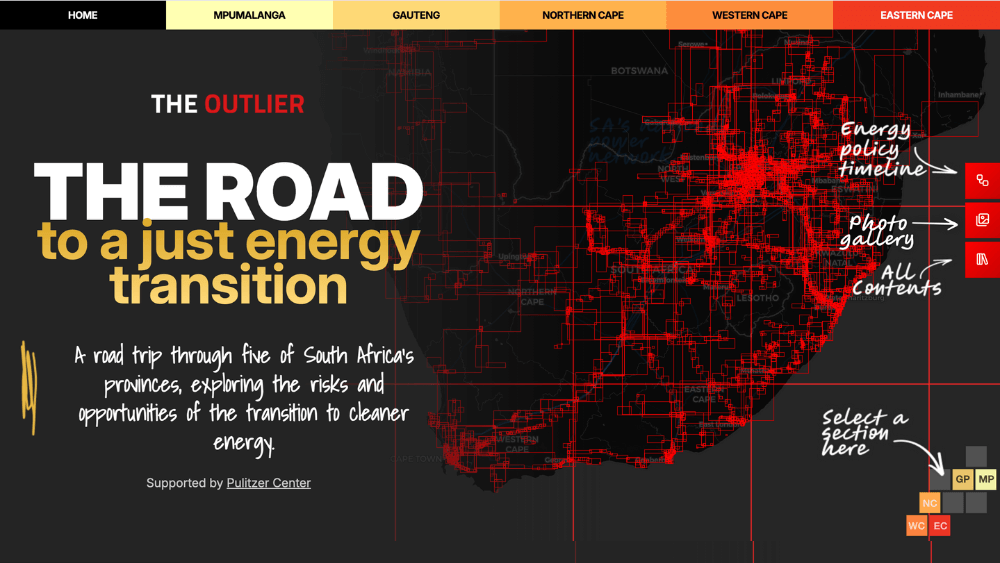As the world races to embrace new technologies to avert climate disaster, South Africa is rolling out a plan to ensure its energy transition doesn’t leave communities or workers behind.
With global goals to reduce greenhouse gas emissions by 45% by 2030 and reach net zero by 2050, scaling up clean energy sectors is critical and urgent. For South Africa, where coal powers more than 80% of the electricity mix, this transition will be challenging.
The country’s just energy transition is supported by an $11.7-billion pledge from a group of wealthy nations, provided through a combination of cheap loans, guarantees, commercial debt, and non-repayable grants.
This type of climate finance is essential for developing countries like South Africa, Indonesia, Vietnam and Senegal – nations heavily reliant on coal and oil.
Our latest in-depth and interactive feature explores how South Africa is navigating this challenge and examines the social and economic impacts on coal-reliant communities. As Eskom’s coal plants approach the end of their lifecycle, tens of thousands of workers face uncertainty. We delve into the measures being put in place to protect these workers while the nation moves towards a greener future.
Join us on a journey through five of South Africa’s provinces, where we explore not only the risks but also the opportunities of transitioning to cleaner energy.
👁 Explore more: The Road to a Just Energy Transition
